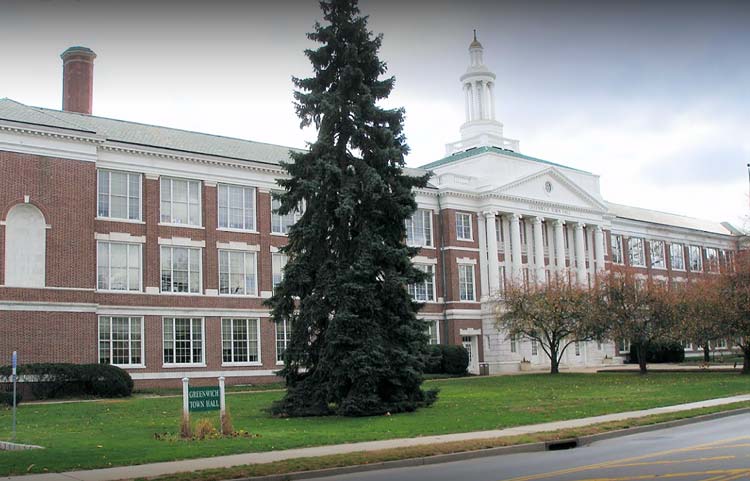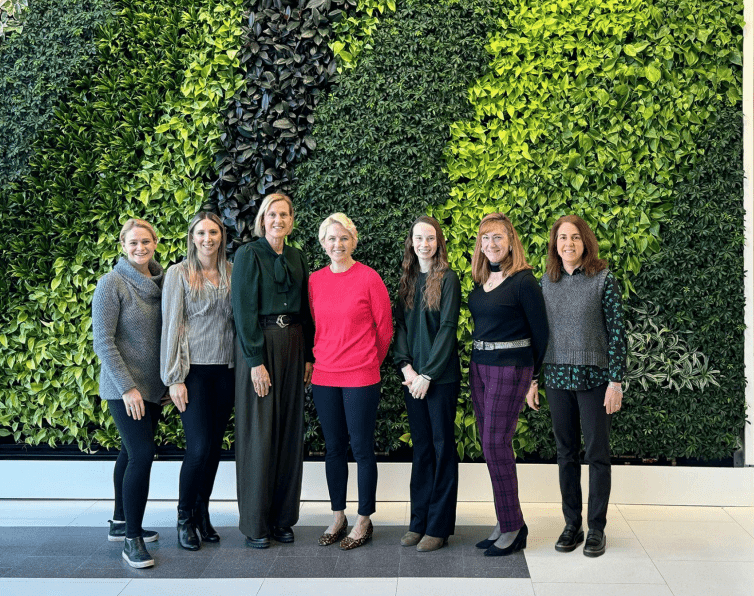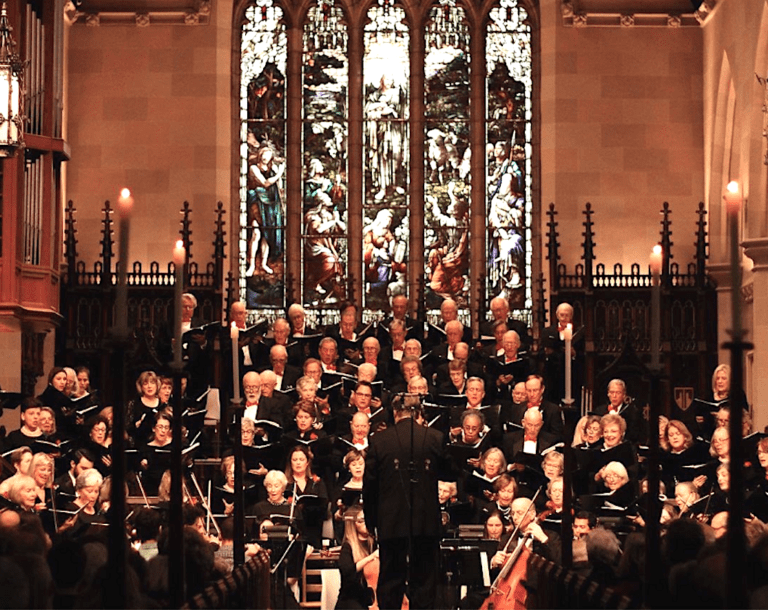

By Richard Kaufman
After months of preparation, meetings and number crunching, the Representative Town Meeting swiftly approved Greenwich’s $421 million, 2018-2019 town budget by a vote of 202 – 0, with two abstentions, on Monday night.
Unlike last May’s budget vote, which took six hours and concluded just before 1 a.m., the RTM needed just two hours and forty-five minutes to pass this year’s spending plan.
For the first time in over 20 years, with the exception of one year when the town’s real property grand list was increased by the revaluation of property assessments, the budget features a zero percent real property mill-rate increase. As a result, residents won’t see taxes climb in the upcoming fiscal year.
The budget also marks the 17th consecutive year in which the rate of increase in the mill-rate was 3.5 percent or less.
“This is a significant accomplishment, and one we should all take credit for,” said Board of Estimate and Taxation chair, Jill Oberlander. She then thanked First Selectman, Peter Tesei, and Superintendent of schools, Dr. Jill Gildea, and their staff, for helping to craft a sensible budget.
The original proposed budget showed a mill-rate increase of .32 percent, but the BET was able to allocate funds from the town’s fund balance, or “rainy-day fund,” to bring the percentage to zero.
Towards the end of Monday’s meeting, the RTM’s Budget Overview Committee brought a Sense of the Meeting Resolution to the table in an effort to allocate an additional $3 million from the fund balance to reduce taxes altogether. But since the item was not on the meeting’s agenda prior to Monday, a two thirds vote was needed to hear the resolution. Ultimately, the vote failed and the resolution was withheld.
The budget, which will go into effect on July 1, 2018, and run through June 30, 2019, originally came to the RTM on Monday night at $426 million, but decreased after several small cuts.
One big item on the agenda, which was expected to garner plenty of debate on Monday, became a moot-point hours before the RTM meeting began.
On Monday afternoon, the Planning & Zoning Commission narrowly voted to nix the controversial Sound Beach Avenue bridge/roundabout project near the Perrot Library in Old Greenwich.
Under a Municipal Improvement request, members of the Planning & Zoning Commission are charged with determining if a project is “not inconsistent with the Plan of Conservation and Development,” according to P&Z Director, Katie DeLuca, in an email.
“Our Plan speaks to addressing traffic issued around business areas, libraries, parks, and addressing flooding issues, enhancing gateways to help define the villages and strengthen the sense of place, and reinforces the neighborhood village concepts,” DeLuca added.
The project, which was reviewed extensively over the past several months through public meetings, had received backlash from residents, who voiced specific concerns about potential flooding, increased traffic, and damage to Old Greenwich’s small-town feel.
During the special meeting on Monday afternoon at Town Hall, according to DeLuca, three Commission members felt that even though the details of the Sound Beach Avenue bridge/roundabout project needed to be worked on, the plan should move forward, but two members disagreed which resulted in a 3-2 vote. A 4-1 tally is needed for the vote to carry, so the project was denied.
The budget called for the release of $4.9 million for the construction, which would have been reimbursed by the state. But, because of the de facto denial from P&Z, the funds were deleted from the budget.
“The project is being withdrawn because it did not go forward, and therefore there’s no necessity for the funds in this budget,” Tesei said Monday night. “Any future look at the bridge will come back as a separate project. It has to go through the process from step one, so essentially this wipes the slate clean.”
RTM District 6 member and Old Greenwich resident, Candace Garthwaite, who has been vocal about the project in the past, said the motion to officially remove the funds from the budget served as a way to protect the governance process.
“Those of us who were fighting this project felt that we had to protect the Perrot Library and our historic streetscape,” she said, to some applause in the crowd.
Another item discussed on Monday was the issue of playing fields around town, which has become a heavily-debated topic in recent months. $300,000 was set aside in the budget for the feasibility of a new grass playing field at Central Middle School.
John Eddy, an RTM member from District 8, which contains CMS, motioned to cut the funding in half to $150,000. He argued that only the study should be funded at the moment. The motion eventually failed, 75 to 128, with seven abstentions.
David Rudolph, of District 6, was also in favor of reducing the funding.
“I’m voting in favor of this motion, because it allocates the funds needed to complete field studies while retaining the oversight authority of the RTM before additional funds are allocated and spent on a project that may not be popular, fiscally sound or even possible,” he said. “Depending on the outcome of the studies, there is no reason to allocate $300,000 when only $150,000 is needed to complete the studies necessary to determine if this project should go forward or not.”
Kimberly Blank, chair of the RTM’s Education Committee, said the committee was in favor of going forward with the full amount of $300,000. “The current field is in a poor state, and something needs to be done to improve it,” Blank said. “At a minimum, something needs to be done to meet the needs of the students at CMS. In addition, there’s hope that an improved field can serve the entire town and help alleviate the shortage of fields.”
Neighbors to CMS have argued that a new playing field would increase traffic after school in the already congested area, and would create safety problems for pedestrians.
“Once this money is spent, the project will still be subject to ordinary Planning & Zoning and Municipal Improvement reviews. All of the concerns raised by the neighbors will be able to be considered then before the town moves forward with choosing a final design,” Blank reminded her fellow RTM members.
Aside from the CMS field feasibility study, the budget features several new capital projects such as: the refurbishing of carpets on fields six and seven at Greenwich High School; an evaluation study of the Dorothy Hamill Skating Rink, which is the first step in developing the plans for the design and construction of a new ice rink; and a request to dredge Greenwich Point Harbor Channel for the first time in 20 years.
“The budget continues town services, and provides a responsible capital investment plan. It maintains existing infrastructure and good repair, and identifies select improvement projects to address public safety concerns, and desired quality of life improvements,” Oberlander said.
Elsewhere, Tesei called for the deletion of $30,000 originally requested to support the public/private partnership for Think Greenwich, the town’s marketing and branding initiative, which is in its second year. Tesei’s motion passed 173 to 31, with no abstentions.
When the BET approved the budget last month, it placed a condition on the $30,000 that called for the funds to be released contingent on Tesei presenting an economic development plan.
However, Tesei said the $30,000, which is part of the overall $100,000 needed for the campaign, was no longer needed.
“The private component is encouraged with the success they’ve been having with raising funds and believe they’re able to accomplish the objective without town monies,” Tesei said.
Christine Edwards, of District 8, opposed the cut, and argued that $30,000 was not a lot of money for the town to continue to participate in the initiative, which is geared to attract business and residents to Greenwich.
“The town should have some skin in the game as well,” she said. “We should not cut that small amount, but rather include that to show the confidence that we have in marketing the town of Greenwich to anyone who might want to be here.”
With the 2018-2019 budget officially adopted, the budgeting process begins anew almost immediately.
“This evening marks the culmination of hundreds of hours spent by dedicated employees, developing, explaining and often defending their department’s programs and service levels,” Oberlander said on Monday night.
Town officials will now begin planning with an eye toward 2019-2020.




